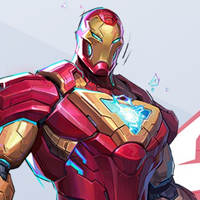Marvel Rivals was reportedly almost cancelled because the CEO of NetEase didn't want to pay Disney for the licenses
And who can blame him, really?

Marvel Rivals is a big hit, but there was a time when its very existence was in doubt. That's according to a new Bloomberg report on developer NetEase and its CEO William Ding, which says that before the game was released there were discussions about cancelling it outright. NetEase has denied the claim.
The problem, according to a source cited by the report, was that Ding didn't like paying Disney, which owns Marvel, for the right to use its characters in the game. At one point, Ding reportedly asked artists to replace the Marvel superheroes with their own designs, which would've saved a few bucks on licensing fees but ended up costing NetEase millions because of the time and energy wasted on the effort.
A NetEase rep who denied the allegation said NetEase and Marvel have had a good working relationship since 2017, but even so you can see why Ding might have given thought to breaking free. I'm sure those Marvel licenses don't come cheap, and with live service games being notoriously unstable ground on which to plant a flag, reluctance to sink major money into one, especially given the outcome of Marvel's Avengers, is understandable.
Of course, Marvel Rivals is a big hit—it recently surpassed 40 million players—and in hindsight, cancelling it or cutting the licensed lineup would've been a major misstep. But the Bloomberg report says that sort of waffling has been a hallmark of Ding's leadership in recent years: Changing his mind frequently about ongoing projects and cutting support for games in development or shutting them down entirely.
That's been visible in North America: Even though Marvel Rivals is riding high, NetEase laid off developers working on the game at its Seattle studio, and ended funding for the recently-launched Worlds Untold and Jar of Sparks studios. But the Bloomberg report says the cuts are also taking a toll in China, to the point that NetEase studios in the country may not release any major games in 2026.
Ding also apparently wants NetEase to focus on games like the multiplayer mobile game Eggy Party, that have mass-market appeal and plenty of recurrent spending options. Sources told Bloomberg that games that don't have the potential to earn hundreds of millions of dollars per year are seen as not worth the bother, although a NetEase representative said the company doesn't have "arbitrary blanket numbers for determining the viability of a new game."
While some at NetEase clearly have questions about Ding's leadership, it sounds pretty mainstream to me. Electronic Arts CEO Andrew Wilson, after all, recently suggested that Dragon Age: The Veilguard failed to meet the company's internal expectations because it didn't have live service components: In order to succeed in the future, Wilson said, "games need to directly connect to the evolving demands of players who increasingly seek shared-world features and deeper engagement."
The biggest gaming news, reviews and hardware deals
Keep up to date with the most important stories and the best deals, as picked by the PC Gamer team.
It's tough to make a successful live service game but incredibly lucrative when it works out, and if NetEase can keep the wheels turning on Marvel Rivals it could be a cash cow for years to come. In this case at least, it's a good thing for NetEase that Ding changed his mind.
Marvel Rivals tier list: Best characters for each role
Marvel Rivals ranks: How to climb in competitive
Marvel Rivals units: How to earn the currency
Marvel Rivals codes: Grab free gear and more
Marvel Rivals review: Hero shooter report

Andy has been gaming on PCs from the very beginning, starting as a youngster with text adventures and primitive action games on a cassette-based TRS80. From there he graduated to the glory days of Sierra Online adventures and Microprose sims, ran a local BBS, learned how to build PCs, and developed a longstanding love of RPGs, immersive sims, and shooters. He began writing videogame news in 2007 for The Escapist and somehow managed to avoid getting fired until 2014, when he joined the storied ranks of PC Gamer. He covers all aspects of the industry, from new game announcements and patch notes to legal disputes, Twitch beefs, esports, and Henry Cavill. Lots of Henry Cavill.



